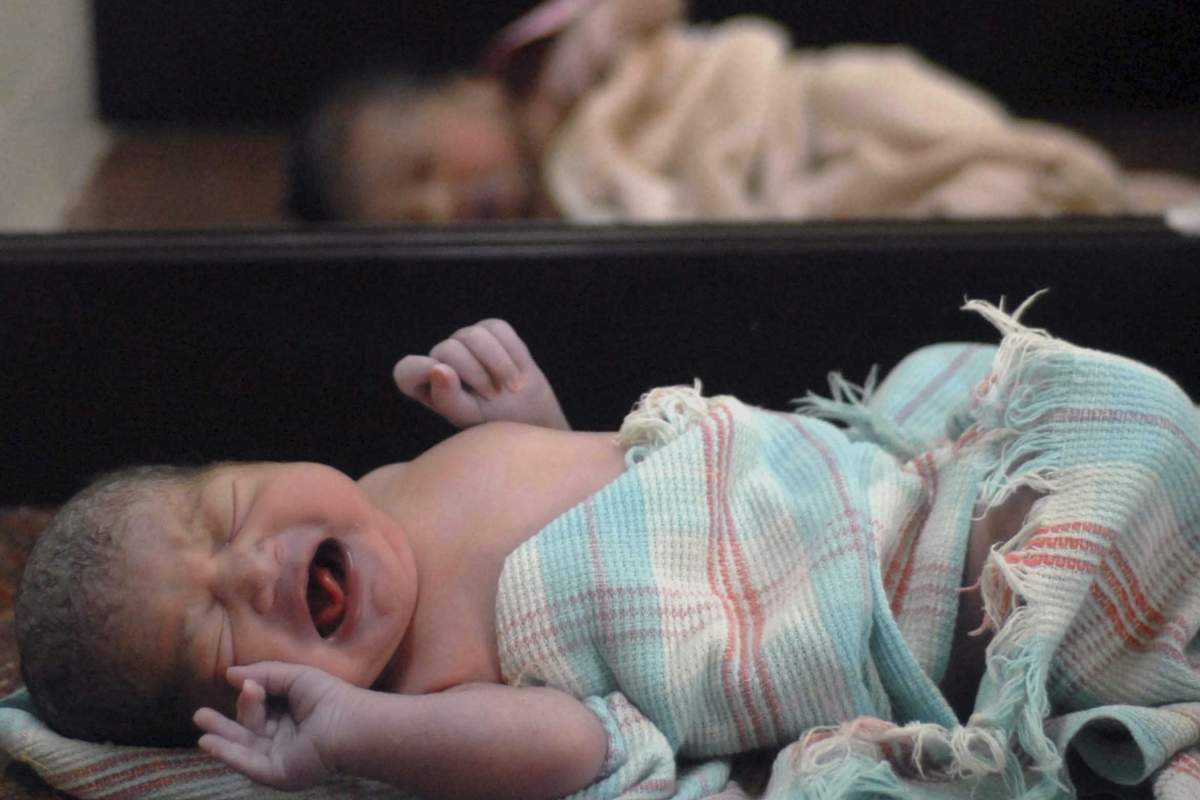The biggest trends in the world right now are coronavirus and COVID-19 — so why not turn them into baby names?

An Indian couple says they’ve named their newborn twins Corona and Covid in an effort to put a positive spin on the deadly pandemic that is sweeping the globe.
The bouncing bundles of viral joy arrived on March 27 at B.R. Ambedkar Memorial Hospital in Raipur, central India, according to media reports.
“I was blessed with the twins — a boy and a girl — in the early hours on March 27,” mother Preeti Verma told the Press Trust of India news agency. “We have named them Covid and Corona for now.”
Vinay Verma rushed his pregnant wife to hospital on a motorcycle just before midnight on March 26 for the birth, Preeti told India’s Express News Service. She said it was a tense journey as they passed through several checkpoints under India’s coronavirus lockdown measures.
Preeti ultimately arrived at the hospital and gave birth via caesarean section due to complications early the next morning, according to Shubhra Singh, a spokesperson for the hospital.
“Within 45 minutes of their arrival, the delivery was done successfully,” Singh told the Press Trust of India.

Get daily National news
Preeti, 27, says she and Vinay embraced the names after hospital staff started using them for the children.
- China drops visa requirement for Canadian tourists, business visitors
- Epstein files fallout: People who’ve resigned or been fired after DOJ release
- Inuit look to Greenland’s social model as Canada pursues military buildup in Arctic
- Europe looks to boost its security, urges U.S. to ‘repair and revive trust’
“The delivery happened after facing several difficulties, and therefore, me and my husband wanted to make the day memorable,” she said.
“We finally decided to name them after the pandemic.”
They named the boy Covid and the girl Corona.
“We wished to ease the anxiety and fear associated with these words and also make the occasion memorable,” Verma added in an interview with Express News Service.
They have since been discharged from the hospital.
“Both the mother and newborn babies are doing fine,” Singh said.
—
Questions about COVID-19? Here are some things you need to know:
Health officials caution against all international travel. Returning travellers are legally obligated to self-isolate for 14 days, beginning March 26, in case they develop symptoms and to prevent spreading the virus to others. Some provinces and territories have also implemented additional recommendations or enforcement measures to ensure those returning to the area self-isolate.
Symptoms can include fever, cough and difficulty breathing — very similar to a cold or flu. Some people can develop a more severe illness. People most at risk of this include older adults and people with severe chronic medical conditions like heart, lung or kidney disease. If you develop symptoms, contact public health authorities.
To prevent the virus from spreading, experts recommend frequent handwashing and coughing into your sleeve. They also recommend minimizing contact with others, staying home as much as possible and maintaining a distance of two metres from other people if you go out.
For full COVID-19 coverage from Global News, click here.









Comments
Want to discuss? Please read our Commenting Policy first.